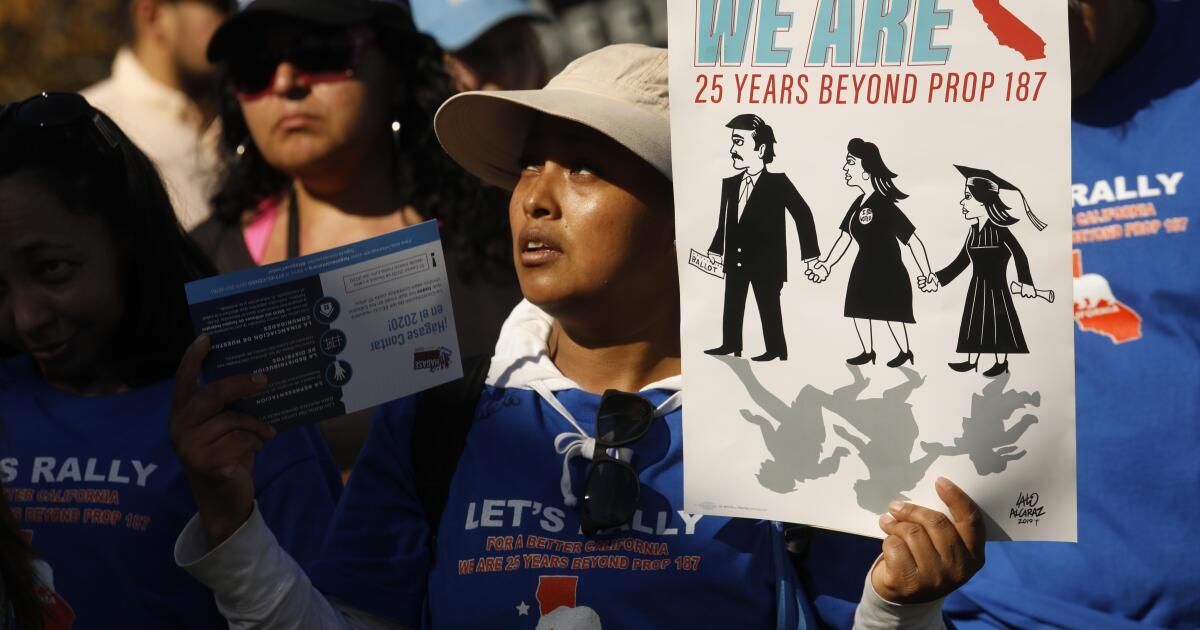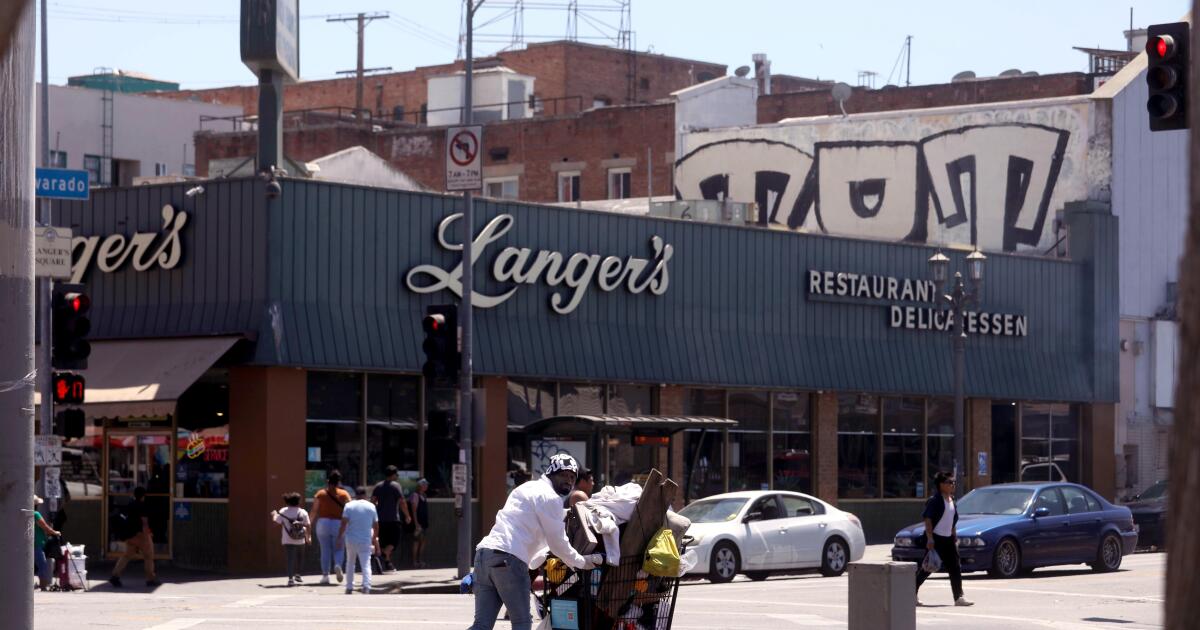The Democratic Party and its presidential candidate Kamala Harris should stop promoting “border security” and offer a new approach to the immigration debate, firmly rooted in American values of justice, opportunity and truth.
The contrast with Donald Trump should be easy to understand: The former president is promising to implement the “largest mass deportation” in the nation’s history and issue an executive order denying birthright citizenship to any child born to residents who are in the country without papers. These actions would have a devastating impact on millions of people, many of whom have been in the United States for decades. They would wreak havoc on our economy, which not only relies on, but is driven by, immigrants with and without papers. And they would irreparably tarnish our moral standing as human rights leaders around the world.
While the Republican Party's embrace of exclusion is frightening, equally troubling is the Democrats' embrace of policies that falsely equate border security with more restrictive asylum regulations, including President Biden’s executive order in June closing the border to asylum seekers when numbers reach certain thresholds. The hope seems to be that an approach somewhat less cruel than mass deportation will satisfy those sympathetic to immigrants but also push some potential MAGA supporters away from the xenophobic abyss.
Harris seemed to play this strategy with her now Infamous Comments of 2021 In his speech to Guatemalans: “Don’t come … If you come to our border, you will be turned away.” While it may have been more a statement of fact than a threat, it revealed a serious lack of understanding about the forces that drive migrants to leave their homes. It also damaged his — and the administration’s — credibility with immigrant communities — a “big stain,” as one UC Irvine political scientist told The Times. His latest talking points — emphasizing drug cartel prosecutions and the border enforcement bill that Republicans rejected earlier this year — point in the same anti-immigrant direction.
What should Harris say and do? To paraphrase her own motto, she should argue that “We are not going back” to divisive policies and “build the wall” attitudes. Harsh language against immigrants has a short political life. In California, we know this history firsthand.
This year marks the 30th anniversary of the state’s passage of Proposition 187 in 1994, a measure that sought to prevent undocumented immigrants in California from accessing basic, vital services, especially health care and public education for their children. It required all teachers, school nurses, firefighters and police officers to report anyone they even suspected of being undocumented. The initiative was halted and eventually ruled unconstitutional by federal courts, but even before it went into effect it sparked a counteroffensive on behalf of all Californians.
Three decades later, California's political terrain has changed so significantly that the state has expanded earned income tax credits, university tuition programs and health insurance undocumented residents. Most importantly, it is now nearly impossible for an anti-immigrant candidate to win statewide office.
The move away from exclusion didn’t happen on its own. At first, it set off a tug-of-war between California moderates and progressives over how to counter anti-immigrant fear and fervor, with some advocating a defensive middle-of-the-road stance, similar to Harris’s now.
What prevailed instead was a grassroots effort to build a multiracial, cross-sector coalition in support of common-sense policies in a sanctuary state. For example, when anti-immigrant jurisdictions began using traffic stops to criminalize noncitizens (affecting families, communities, and sectors of the economy, not to mention transit), the coalition succeeded in passing Assembly Bill 60 in 2013, after a battle lasting more than a decade, granting undocumented immigrants access to a special driver’s license.
Along the way, the process has demonstrated the benefits of inclusion for the state. As The Times reported last week, international migrants have “lifted” the U.S. and California economies, creating jobs and “injecting millions of tax dollars” into government coffers.
In fact, politicians in the Golden State are now likely to remind their audiences that state economy —the fifth largest in the world— is home to more than 10 million immigrants with a spending power of $383 billion, and 40 percent of the state's business owners are immigrants. Even undocumented immigrants are a proven blessing: Nationally, they contribute $13 billion more per year to the Social Security system from which they will be able to withdraw.
California’s move away from the idea of Prop 187 can and should be exported nationwide. It’s a perfect opportunity for any political figure, but especially Harris and the Democrats, to look to the future.
Polls show that despite attacks on their very existence, immigrants and their children are largely optimistic — a stark contrast to the dark tones of a MAGA movement that thinks America can only be great by returning to a mythical, all-white past. Harris should wholeheartedly embrace a more hopeful vision of America, based on facts that demonstrate immigrants’ contributions, rather than be tempted to willy-nilly support Trump’s hate-filled agenda.
We are both children of parents who were once undocumented. We know that immigrants enrich our society and that demonizing newcomers is morally and factually wrong. A bold and courageous commitment to inclusion will strengthen the United States, reflect the values of a democratic and diverse nation, and bring us closer to realizing the American dream that so many, especially immigrants, aspire to.
Manuel Pastor is a professor of sociology and director of the Equity Research Institute at USC. Miguel Santana is president and CEO of the California Community Foundation.












